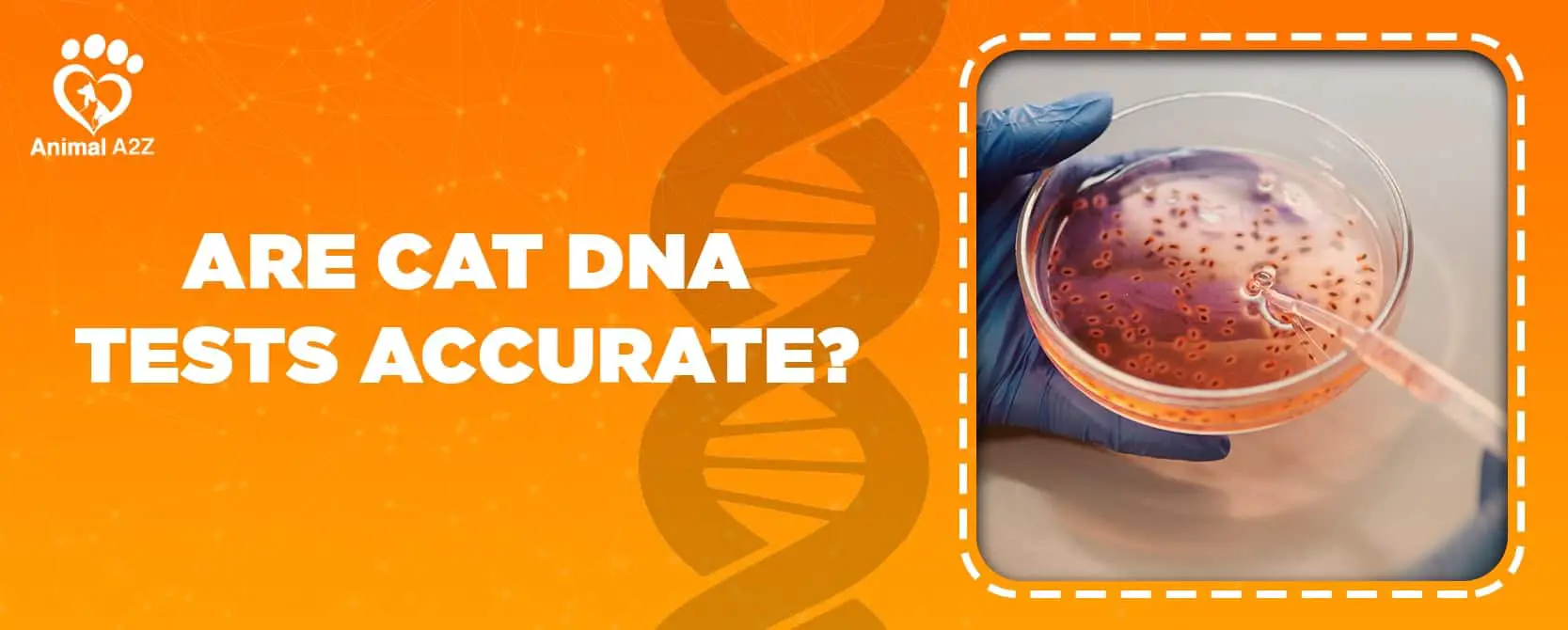Cat DNA testing is a relatively new technology that cat owners and breeders use to determine what breed a cat is.
Table of Contents
How accurate is cat DNA testing
DNA testing is still in its early stages, so it still has some room for improvement. Cat DNA tests are not 100 percent accurate, but they can still identify which breeds your cat shares the biggest percentage of genetic makeup with.
Basepaws makes pretty accurate cat DNA tests
BasePaws Pets DNA test
|
What you need to know about cat DNA tests
The thing about cat DNA testing is that it’s unregulated and also fairly new compared to DNA testing on dogs. This type of DNA testing is now in its developing phase with advancing technology and growing databases. Because of this, the test results will more likely become more comprehensive and accurate soon.
Aside from helping cat owners to determine their cat’s breed, cat DNA testing is also beneficial in predicting what genetic diseases the cat can be at risk of.
This doesn’t mean that a DNA test can tell if a cat will get a certain disease or not. But if the test reports show that your cat is “at-risk” from a hereditary disease, it’s best to get to your veterinarian for a consultation for a more detailed diagnosis of your cat’s health.
Cat DNA testing can also be a great help for cat breeders and owners who want to ensure that they create the best bred matches, make sure that the kittens’ quality won’t be compromised, and improve the uniqueness of a cat breed.
Read more about genetic testing of cats: How do I get a DNA test for my cat.
DNA tests to trace your cat’s lineage
Part of the fun in cat DNA testing is the idea of tracing your cat’s lineage back to an exotic breed. But not every domestic cat has ‘exotic traits’ since most felines don’t descend from this type of breed.
Most cats in the United States are Domestic Shorthairs, which isn’t a breed but a designation for felines with mixed lineage instead. These felines are usually almost identical in genetics to the cats that were on the planet thousands of years ago.
To compare, people have been breeding and domesticating dogs to accomplish certain tasks like herding sheep. Because of this, DNA tests can trace a dog’s lineage to a specific or combination of breeds.
But since humans never bred cats to produce certain traits until 150 to 250 years ago, the number of cats belonging to one of these original breeds is rare.
So, what’s the origin behind the Domestic Shorthairs that consists almost 95% of the felines people know and love today? Although they haven’t evolved from any breed, all domestic shorthairs have their distinctive genetic makeup with some similarities with other cats, depending on several factors such as where their ancestors are from.
It is easy to figure out if your cat is mixed breed doing a little genetic testing. It’s easy to order a test online and afterwards send in a small DNA sample.
Check out the low price here.
What else do cat DNA tests show?
Cat DNA testing provides an in-depth report of your cat’s genetics, showing what breeds they’re closest to genetically.
There’s no percentage describing the amount of genetic material your cat may share with these particular breeds. Instead, DNA tests rank all breeds from the most to the least similar, giving you a good overview of your cat’s origins.
Additionally, DNA tests also provide other information such as your cat’s breed origins, behavioral traits, and susceptibility to certain diseases (what illnesses are most common in the breed your cat is most similar to).
Genetic tests to see if your cats have wildcat blood
Some feline DNA testing companies such as “Basepaws” have the ability to know how much genetic material similarity your feline friend has with their wildcat ancestors, such as tigers, leopards, servals, and cheetahs. The results will give a list of at least four wildcat breeds, which are in sequence from the most similar genetic makeup to the least similar.
However, when it comes to the Domestic Shorthairs, we should keep in mind that these cats didn’t come from huge wildcats. Still, we can say that they came from a common cat ancestor million years ago.
Even if the test results show some genetic similarities with any of the wildcats, remember that this is just a mere coincidence due to their random and spontaneous genetic mutations.
Test how much wild cat your cat is: Check it out here.
Predicting health issues
There are particular “genetic markers” (a unique DNA sequence that can be used to identify an individual or species and their certain traits) present in cats, showing if they have inherited some genetic diseases.
If your cat undergoes a feline DNA test, their genome will be analyzed to see if they’re positive for the said DNA or genetic markers. Once there’s the result, you can easily determine whether your cat is at risk of the said hereditary disease.
However, remember that this feline DNA test is not intended to actually diagnose any health conditions or feline diseases on your cat.
Common questions about cat DNA tests
How much does a feline DNA test cost?
The prices for cat DNA tests vary from test to test and from different feline DNA testing companies. The price for these may range from as low as $45 up to over $100. DNA testing for your cat can be a very pricey task. However, the test results can give you peace of mind regarding your cat’s lineage and health condition.
Should I do DNA testing for my cat?
If you want to know more about your cats, such as their lineage and underlying hereditary health conditions, then you should definitely do a DNA test for your cat. By doing this, you also contribute to the expanding data bank of cat genetic sequences, which may help other cat owners and breeders understand their cats more.
What is the most affordable DNA test for cats?
CatDNATest.org offers affordable DNA testing kits with a base price of $45. This test will tell you about your feline friend’s health conditions and genetic traits. However, you can add an extra $5 for their add-on tests for blood type, albinism, colorpoint, and others.
Final thoughts
While cat DNA testing doesn’t provide 100 percent accurate results for breed or health conditions, it’s definitely interesting and fun to know which types of cat breeds your feline friend shares the most common genes with. And with the use of this relatively new technology, you can learn about the diseases your cat can be at risk for, which is very essential to keep your furry friend in good health condition.




